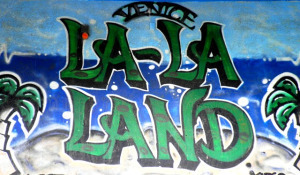Reality vs. Delusion
“It is far better to grasp the Universe as it really is than to persist in delusion, however satisfying and reassuring.” — Carl Sagan
Is Carl Sagan right? When it comes to the cosmic universe, perhaps. When it comes to our personal universe, is it better to persist in delusion? Isn’t that what a dream is, a delusion? The dream might be attainable with luck and hard work, in which case it’s not a delusion. If it is not attainable, is it better to hold on to the dream or is it better to persist in delusion?
I used to think reality was important — I spent my life trying to get down to the rock bottom of ”that which is” (as opposed to what we think is). I studied particle physics and quantum mechanics (for fun, can you imagine that?) and discovered that every  particle can be divided into smaller particles and those particles can be divided, until what you end up is nothing. Or a wave. Or a thought. Or something that changes every time you look at it.
particle can be divided into smaller particles and those particles can be divided, until what you end up is nothing. Or a wave. Or a thought. Or something that changes every time you look at it.
I no longer know if reality is all it’s cracked up to be. If our perceptions can change ”that which is” at the quantum level, perhaps it can change life at the macro level where we live. If so, it might be better to persist in delusion.
I explore this theme of delusion (or illusion, which perhaps comes down to the same thing) in all of my books: What is truth? What is reality? Who are we, really – are we our memories, our experiences, our dreams? I also often explore similar themes in this blog. And I still don’t have an answer.
Reality feels real, while fantasy feels nebulous and silly, but what is fiction writing if not fantasy? We create worlds that never were with our words, and those worlds come alive in reader’s minds, so real, that readers discuss fictional characters as if they were real, and in a certain context, they are real. If the universe is thought, then perhaps they are even as real as we are. Thoughts might have created us in the same way we create characters.
Writing is a powerful tool for living. As we visual other facets of this world, we become better prepared for the vicissitudes of the “real” world. Writers often write for others, needing to connect with readers, which is important. But even more important is writing for ourselves, creating worlds where our worst fears our vanquished and our dearest dreams are realized.
Can writing actually help us create our future? Some people believe that the more concrete one’s visualization, the greater the chance the vision has of becoming real. Symbols also have their place, perhaps reaching even deeper into our psyches than visualization does, and symbols are generally not reality but only representations of reality. In the same symbolical way our nightly dreaming sometimes connects us to things not of this world, perhaps fiction too can connect us to things not of this world.
Like Sagan, I’ve always believed it better to grasp the universe as it is than to persist in delusion, but perhaps it’s time to change my thinking.
***
Pat Bertram is the author of the suspense novels Light Bringer, More Deaths Than One, A Spark of Heavenly Fire, and Daughter Am I. Bertram is also the author of Grief: The Great Yearning, “an exquisite book, wrenching to read, and at the same time full of profound truths.” Follow Pat on Google+. Like Pat on Facebook.
Tagged: Carl Sagan, creating our future, delusion, delusion vs reality, reality





